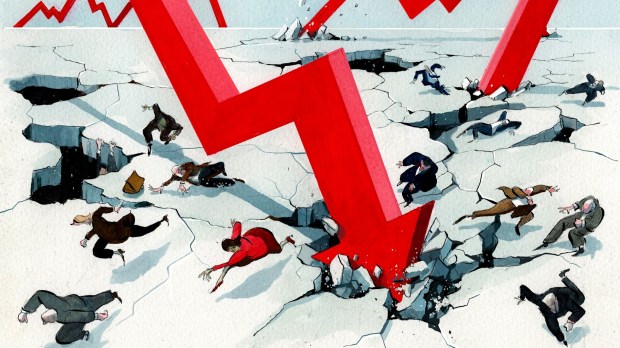‘Greenwashing vs Sportswashing’, as Sky Sports put it, is a curious way to characterise the emerging £6 billion takeover tussle for Manchester United between industrialist Sir Jim Ratcliffe and Sheikh Jassim bin Hamad Al Thani from Qatar. The latter might feel that his emirate – contrary to expectations, shall we say – has been not just sportswashed but drycleaned, pressed and showcased on the red carpet as host of last year’s World Cup, which ended without significant disruption by human rights or anti-corruption activists. Following that with membership of the rogues’ gallery of Premier League owners – recently joined by the Public Investment Fund of Saudi Arabia as majority owner of Newcastle United – is hardly likely to win higher moral standing.
As for Ratcliffe, his petrochemical conglomerate Ineos is anything but green and might by now have been fracking tracts of countryside not far from Manchester if Liz Truss had stayed in power. But it’s a private company and Ratcliffe is a private man who never tries to polish his public image. As for those who decry Ineos – including trade unionists that hate Ratcliffe for defeating them in the 2013 Grangemouth refinery dispute – they’re hardly likely to change their minds after seeing him take his seat in Old Trafford’s directors’ box.
So this is really a story of who blinks in the bidding and who else comes to the table – a US hedge fund, Elliott Investment Management, has also shown tentative interest. The sheikh’s fortune promises stability rather than spivvery and ample cash for new players. But Ratcliffe is a son of Manchester, an entrepreneur who has built one of the very few world-scale British-led businesses of the modern era and, I’m told, a decent, down-to-earth bloke behind a grumpy facade – so he gets my vote. And either will surely be a better steward than the incumbent Glazer family from New York and Florida, who will be remembered only for loading the club with debt and gouging it for dividends.
Don’t rely on Big Oil
‘Big Oil: still profits before planet’ was the headline on a recent Financial Times feature detailing the retreat of major western energy companies from investment in renewable alternatives while profits run red-hot on their traditional fossil-fuel businesses because of war-driven price spikes. Shell made $40 billion of profit in 2022 but invested only $3.5 billion in renewables; for the US giant Chevron, the equivalent numbers were $35 billion and $2 billion. BP tried harder but found its share price lagging and has now pulled back from earlier emission-cutting promises.
And that’s evidently the way institutional investors, particularly in the US, prefer things to be. ESG investing (picking stocks according to compliance with ‘environmental,social and governance’ metrics that aim to exclude fossil fuels, arms, tobacco and other sins) has been going out of fashion as fast as returns on energy and defence stocks have soared. Pennsylvania-based Vanguard, the world’s biggest mutual-fund manager, has pulled out of an investors’ climate-change lobby group and refused to rule out new oil and gas investments.
A triumph of realism over virtue-signalling, or a catastrophic setback on the road to net zero? Whichever side you take, it’s evident that the carbon giants of today can’t be relied upon to convert themselves into the zero-carbon flagbearers of tomorrow – unlike mass-market carmakers that are rapidly pivoting to electric vehicles. In that sense, maybe it’s a good thing that Big Oil (namely BP, Chevron, ExxonMobil, Shell, Total of France and Equinor of Norway) paid out between them well over $100 billion to investors in dividends and share buybacks last year – capital that’s now available, in theory, to back other entrepreneurs and innovators with commitment and expertise in all forms of renewables. That may sound optimistic – but the beauty of capitalism has always been its ability to reinvent itself in different shapes for different times.
Slough of idleness
Call me old-fashioned, but I’m finding it hard to swallow all the positive reporting of a recent six-month trial, by 61 companies, of a four-day working week instead of five. I’m prepared to believe that employees in the trial felt less stressed and reduced their number of sick days; I can see the benefit of trying to squeeze out the many man-hours wasted in most workplaces on gossip and trivia. But the current private member’s bill sponsored by Labour MP Peter Dowd to reduce the maximum UK working week to 32 hours is a crazy misconception for an economy that’s already sinking into a slough of idleness and underperformance. If you insist on only four days a week in the office, at least devote the fifth to launching a renewable-energy start-up.
Slices of paradise
‘Go big or stay close to home?’ begins a holiday ad offering a choice between ‘rooftop pools in the heart of Dubai’ and a country retreat ‘just outside Burnley’. The strapline seems to sum up consumer trends as well as readers’ responses to my call for winter escape ideas. On the one hand, January food sales (according to the Office for National Statistics) were at 96 per cent of their 2019 level by volume but 114 per cent by value – a stark measure of inflationary pressure on household budgets. On the other hand, travel agents report lively booking demand, up around 5 per cent in average spend on 2022.
Your own getaway tips ranged from Kelso to Croatia and Colombia but both my favourite replies had an attractively Edwardian tone. ‘Just back from six weeks on the French Riviera,’ said the first, ‘mercifully free… from noisy children and undesirable compatriots.’ ‘I love paddle steamers,’ said the second: lunch cruises on the Swiss lakes offer ‘little slices of paradise’ available via a £47 easyJet return from Bournemouth to Geneva. Cheaper – possibly – than staying at home with the heating on.
Got something to add? Join the discussion and comment below.
Get 10 issues for just $10
Subscribe to The Spectator Australia today for the next 10 magazine issues, plus full online access, for just $10.
You might disagree with half of it, but you’ll enjoy reading all of it. Try your first month for free, then just $2 a week for the remainder of your first year.















Comments
Don't miss out
Join the conversation with other Spectator Australia readers. Subscribe to leave a comment.
SUBSCRIBEAlready a subscriber? Log in